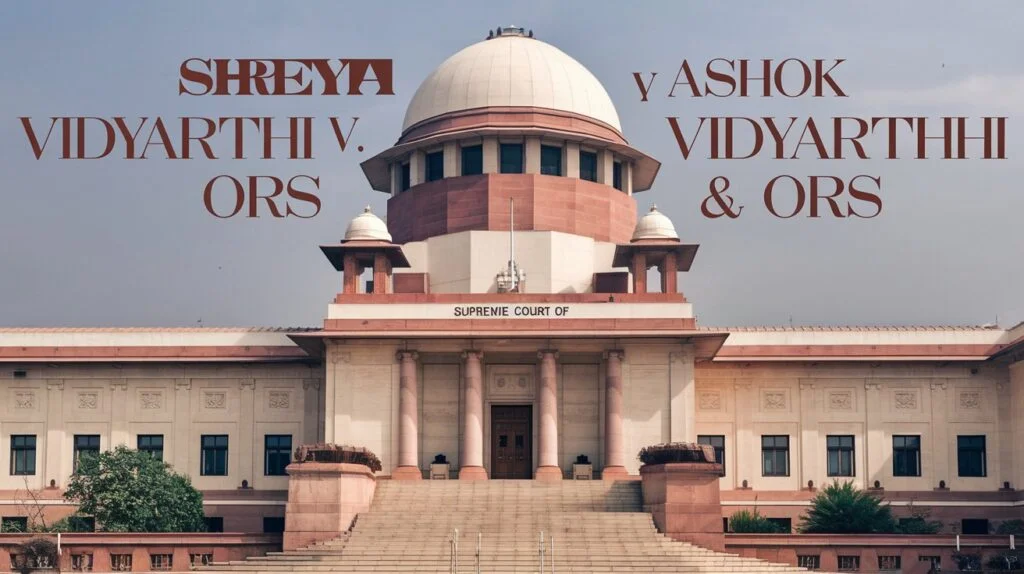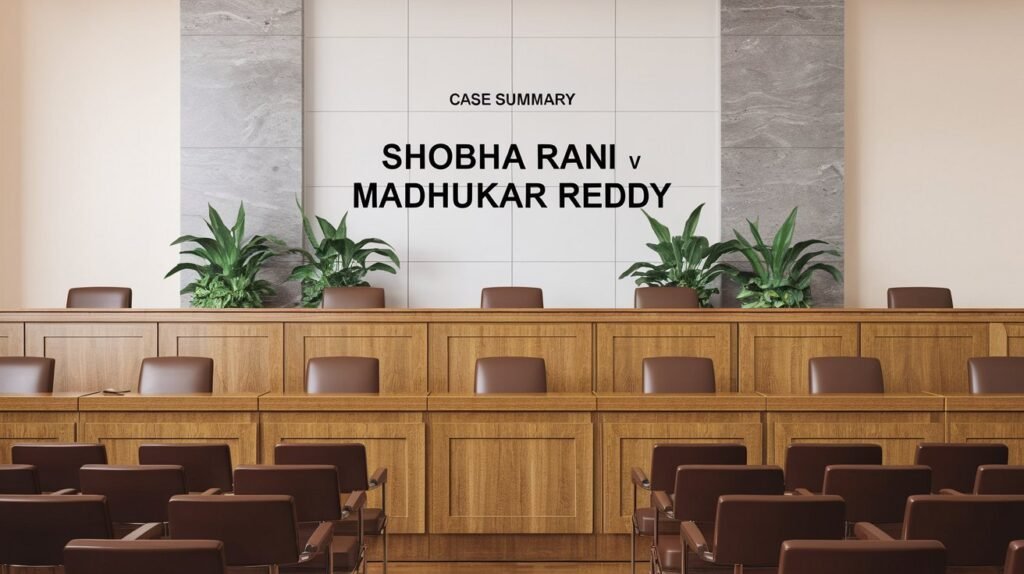Rajnesh v. Neha 2021 2 SCC 324 (Case Summary)

In this significant judgment, the Supreme Court of India laid down comprehensive guidelines on the payment of maintenance in matrimonial disputes. The Court emphasized the need for uniformity in the criteria used to determine maintenance and established a framework for balancing the interests of both the spouse seeking maintenance and the one obligated to pay it.
Table of Contents
ToggleFacts of Rajnesh v Neha
- Rajnesh (the appellant) and Neha (the respondent) were married and had a son from the marriage.
- Neha filed multiple applications for maintenance under various legal provisions, including the Protection of Women from Domestic Violence Act, 2005, and Section 125 of the Criminal Procedure Code, 1973 (CrPC).
- Rajnesh contended that he was already paying interim maintenance and that the multiplicity of proceedings for maintenance should be consolidated to avoid double payment.
- The case revolved around the determination of maintenance, accounting for the financial status of both parties, and avoiding conflicting orders from different courts.
Issues framed
- Whether there should be uniform criteria for determining the quantum of maintenance?
- Whether multiple maintenance proceedings under different laws should be consolidated to avoid overlapping claims?
- Whether the payer of maintenance can claim adjustments for amounts already paid in one proceeding against claims in another?
Subordinate Court Judgment
The Family Court awarded interim maintenance of Rs.15,000 per month for the wife and Rs. 10,000 per month for the son. The Appellant (husband) challenged the Family Court’s order before the High Court, which upheld the family court’s decision. Dissatisfied with the High Court’s order, the husband approached the Supreme Court, arguing his incapability to pay the maintenance due to unemployment.
Judgment of Rajnesh v Neha
The case involved the interpretation of various laws governing maintenance, including Section 125 CrPC, the Protection of Women from Domestic Violence Act, 2005, and the Hindu Marriage Act, 1955.
- The Supreme Court laid down detailed guidelines to ensure uniformity in maintenance orders. The Court ruled that all maintenance applications should disclose the income, assets, and liabilities of both parties in the form of an affidavit. This would ensure transparency in determining the quantum of maintenance. The Court also directed that maintenance orders in different cases be adjusted against one another to avoid double recovery.
The Supreme Court provided a detailed list of criteria for determining the quantum of maintenance to ensure fairness and consistency. These criteria include:
- Standard of Living: The Standard of Living enjoyed by the claimant during the marriage should be considered.
- Income and Property of Both Parties: The income, assets and financial status of both the claimant and the respondent are crucial in determining the maintenance.
- Reasonable Needs of the Claimant: The financial needs of the spouse and children, including education, medical expenses, and household expenses, must be assessed.
- Earning capacity: The earning capacity of both the parties, including ability of the claimant to support themselves, should be factored in.
- Dependent Children: If there are dependent children, their financial needs, including education, health, and lifestyle, must be given priority.
- Age and Health of the Parties: The age, physical health, and mental condition of the claimant and the respondent influence the determination of maintenance.
- Duration of the Marriage: The length of the marriage is relevant, as longer marriages may result in higher maintenance awards to reflect contributions made during the marriage.
- Custodial Responsibilities: The parent with custody of the children is entitled to receive adequate maintenance to cover the costs of child-rearing.
- Spousal Contributions: Non-financial contributions, such as household work and caregiving, are recognized in assessing the claimant’s entitlement.
- Other Liabilities: Existing financial liabilities, such as loans or debts of either party, should be considered to determine the paying party’s capacity.
- Inflation and Cost of Living: Adjustments should account for inflation and the rising cost of living to ensure the maintenance amount remains adequate.
- Pre-existing Reliefs or Payments: Any maintenance or financial support already granted in other legal proceedings must be disclosed and factored in to avoid duplication.
- Misconduct by Either Party: While the conduct of the parties is generally irrelevant in maintenance determination, extreme misconduct may have a bearing in some cases.
The Supreme Court ruled that all relevant factors, such as the earning capacity, financial status, and needs of the spouse, must be considered when determining maintenance. The Court emphasized that maintenance should not be excessive or burdensome but should ensure the financial independence of the spouse in need. The Court also mandated the submission of financial affidavits in all maintenance proceedings to avoid discrepancies and overlapping orders. Furthermore, it directed the consolidation of multiple proceedings for maintenance to avoid conflicting decisions.





